
Real, Unbiased Herbalife Review from an Ex-MLMer
2 Comments
Table of Contents
- A Different Kind of Herb
- Herbalife Company Overview
- When Herbalife All Started (and Almost Ended)
- Are Herbalife Products Safe and Healthy?
- Pros: Why Herbalife Works
- Cons: Why Herbalife is Bad
- Compensation Plan: How The Herbalife Business Works
- Herbalife: Quick Summary
- Bottom Line: Is Herbalife a Grand Slam or Planned Scam?
- Shameless Plug: Realistic Passive Income Without MLM?
A Different Kind of Herb
Herbalife is a massive MLM company selling nutritional supplements, weight-loss and beauty products.
But I feel like they might be missing out on a great opportunity here.
When I mentioned that I was reviewing a company called “Herbalife” to a buddy of mine who likes to smoke a lil’ cannabis, he seriously asked:
“Do they sell weed?”

Lol. Not that kinda herb bro.
Now to be fair, it’s 2025 and in this modern era, marijuana is now legal up here in Canada and is becoming more legal in the United States.
And even though their logo does look suspiciously like the top half of pot leaf, Herbalife has nothing to do with the highly lucrative marijuana industry.

(Just for the record.)
Yet they still manage to rake in billions of dollars in sales annually.
$5.5 billion in 2020 alone.
So it’s safe to say that Herbalife really isn’t missing out on anything.
The real question is:
Are you missing out on some of that sweet green by not signing up with this company-that-sounds-like-it-sells-the-other-sweet-green?
Let’s find out.
Herbalife Company Overview
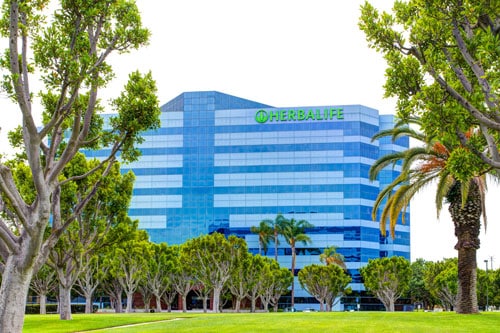
Herbalife is a network marketing company based in Los Angeles, CA.
La La land.
Home of the movie industry.
Appropriate, since MLMs and Hollywood are both known for luring starry-eyed dreamers with promises of how they’re gonna make it big.
But LA is only where Herbalife’s company headquarters are.
Like many companies looking for a tax haven, they’re legally incorporated offshore in the Cayman Islands.
Can’t blame ‘em for that.
And can’t argue with the fact that they’re literally shipping billions of dollars worth of nutritional supplements to their hundreds of thousands of independent distributors around the world.
You’ve probably seen Herbalife advertising even if you didn’t realize it.
For years, it seemed like you couldn’t go anywhere without seeing someone wearing a badge emblazoned with their slogan:
“Lose Weight Now, Ask Me How!”

This turned out to be an incredibly popular way for Herbalife distributors to draw in potential customers and new recruits.
And in spite of facing a barrage of accusations of being a pyramid scheme, Herbalife has continued to sell over $5 billion worth of products annually.
The company distributes to more than 90 countries and they also made the Forbes Best 500 Midsize Employers list in 2019.
I should mention that “best employer” means for the people who are actually getting a salary from them — not the vast numbers of independent distributors buying pills and powders to sell as a home business.
Regardless, Herbalife continues to be an All-American success story.
They also seem to love the game of soccer, being an official sponsor of soccer superstar Cristiano Ronaldo and the LA Galaxy major league soccer team.
Ya know… just for kicks!

(Mr. Stinkerpants isn’t amused.)
Lame jokes aside, they also have a charitable wing: The Herbalife Nutrition Foundation which provides healthy nutrition to children in need.
In March of 2018, the company raised another $1.8 million for their charitable work — a nice chunk of change for a good cause.
This fits in well with their stated belief in social responsibility, which also includes an employee wellness program and a “green living” initiative.
Long story short, Herbalife stands as one of the titans of the MLM industry.
And the story of how they got there is a fascinating one.
When Herbalife All Started (and Almost Ended)
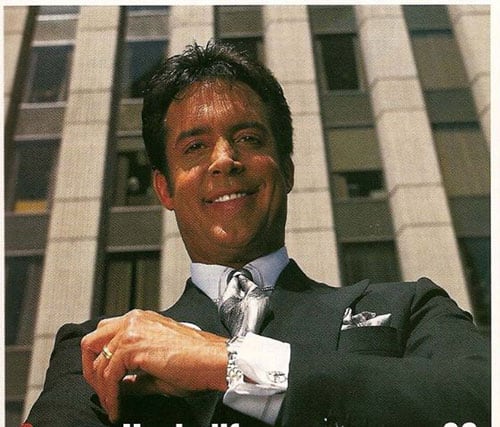
Herbalife was founded back in 1980 by a 24-year-old named Mark Hughes, when he began selling weight loss shakes out of his car in Los Angeles.
A natural-born salesman, the young Hughes had previously sold everything from raffle tickets to exercise equipment.
He was also introduced to the concept of multi-level marketing, becoming a top-earner for a small MLM outfit called Seyforth Laboratories.
After Seyforth and another company he was involved in went out of business, Hughes finally decided to branch out on his own and Herbalife was born.
Structured as a direct-selling (MLM) company, Herbalife was not shy of making exaggerated claims about their products from the get-go.
Neither was Mark Hughes.
By 1982, Herbalife had expanded its operation to Canada but was already receiving complaints from the US Food and Drug Administration (FDA) about unproven product claims.
After modifying some of their formulas to appease the FDA, they were opening for business in the UK by 1984.
1985 was a big year for Herbalife.
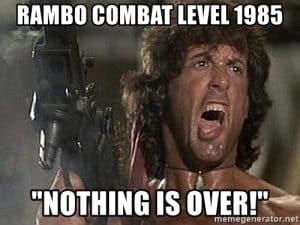
Although they were named one of the fastest-growing companies in the US, the controversial MLM company continued to draw fire from doctors, nutritionists, as well as state and federal agencies.
And Mark Hughes found himself smack-dab at the center of it all.
He appeared in many places to talk about — and defend – his company including the legendary Merv Griffin T.V. show.
Hughes even testified at a US Senate hearing where he famously had this to say about experts who were claiming Herbalife’s products were unsafe:
“I think if they’re so expert in weight-loss, why were they so fat yesterday?”
He may not have been politically correct but that’s funny as hell (and he makes a good point).
Still, congressional controversy and lawsuits aside, Herbalife continued its meteoric rise.
In 1986, it went public on the NASDAQ and would rapidly expand internationally, adding multiple countries every year.

By the late 90’s, the MLM giant was in dozens of countries and almost every continent on the planet.
But Mark Hughes wasn’t too happy with how Herbalife was being treated by Wall Street.
For the last couple years of his life, he tried (unsuccessfully) to take his company private again by buying up shares he felt were being undervalued.
This caused a lot of physical and emotional stress for Hughes, which led to a drinking problem along with him smoking up to eight cigars a day.
This took a major toll on his health and in the summer of 2000, Mark Hughes tragically died at the age of 44 from an accidental overdose of antidepressants and alcohol.
After his passing, Herbalife was eventually acquired by private equity firms in 2002 which took the company private again to improve its products and internal operations.
In 2004, Herbalife went public again — this time on the NYSE (HLF) — where it has remained and flourished as a publicly traded MLM company to this day.
However, it hasn’t been all blue skies and green lights over the years.
A decade after being listed on the NYSE, Herbalife came under its most serious investigation by the FTC in 2014.
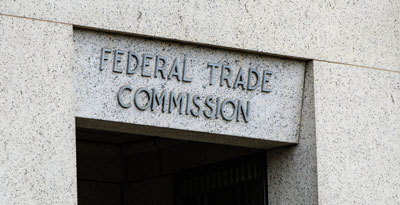
Allegations of being an illegal pyramid scheme caused the stock price to free fall and even hedge fund managers got in the action; placing trades that would make them money if and when the company was shut down.
But other Wall Street bigwigs like Carl Icahn saw the MLM’s stock price dropping and began buying up shares in hopes that Herbalife would persist.
The drama all ended in 2016, when the FTC agreed to a $200 million settlement against Herbalife for “deceptive and unlawful acts”.
Which was essentially an expensive slap on the wrist for the infamous network marketing company.
The FTC would use the settlement money to send checks to almost 350,000 former distributors who allegedly lost money running Herbalife businesses.
Herbalife managed to spin this as a victory since it escaped being officially labeled as a pyramid scheme.
As a result, consumer confidence in the company rebounded and their stock priced soared to record highs, along with their product sales.
And love ’em or hate ’em, Herbalife remains an MLM success story to this day.
Are Herbalife Products Safe and Healthy?
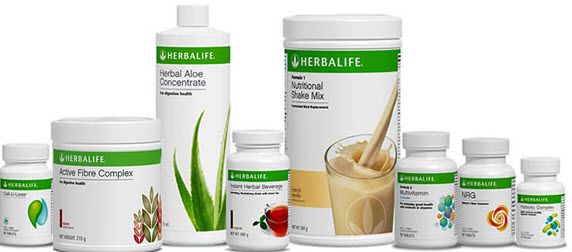
Herbalife basically has five categories of products.
First is their flagship “Core Products”: Formula 1, 2, and 3 — these are the new versions of the original formulas that Mark Hughes was selling outta the back of his car during the 80’s.
Similar to the MLM Team Beachbody, the company also offers weight-loss solutions, vitamins, and energy/fitness products.
Although Herbalife mostly sells nutritional pills and powders, they’ve recently added skin and hair care products to their ever-growing catalog.
So how good are the products?
Well, that depends on who you ask.
Like any MLM, Herbalife has its fans and haters.
A quick search on Amazon.com showed mostly positive reviews, but it’s hard to know how many of those are legit these days.
If you have a sense of humor, you should check out John Oliver’s take on Herbalife below (keep in mind it’s a completely biased, anti-MLM viewpoint):
Needless to say, I don’t think Mr. Oliver is a fan of Herbalife. Or any MLM for that matter.
But to be fair, if Herbalife was really as bad as that video portrays, why are they still in business after 40 years and doing over $5 billion in annual sales?
Just sayin’.
Sure, a few customers have complained of stomach cramps or not liking the taste of certain Herbalife products.
But people say the same thing about McDonalds.
That said, I don’t like the look of their Formula 1 Healthy Meal Nutritional Shake, which contains an equal amount of protein and sugar per serving.
Not exactly what I’d call a “healthy meal”.
But they do redeem themselves a little with Herbalife’s Protein Drink Mix, which only contains about a gram of sugar per serving.
Of course, protein powders aren’t the only thing that Herbalife offers.
Their Formula 2 Multivitamin Complex contains “21 essential micronutrients, including antioxidant Vitamins A (as beta-carotene), C and E.”
Which is all good stuff and plenty of folks seem to like this multivitamin.
Long story short, aside from a few edge cases, it seems like Herbalife products are fine and probably won’t make your life phenomenally worse or better.
As long as you use them in moderation.
When it comes to health supplements, it’s always important to remember that they’re exactly that – “supplements” – to an already healthy diet.
They’re not supposed to be a replacement for poor nutritional habits.
Your basic little 3-ounce chicken breast or cup of Greek yogurt both have around 25 grams of protein and are always gonna be a nutritionally better choice than any pill or powder.

(Not to mention cheaper.)
And don’t forget the tried-and-true apple a day to keep the doctor away either.
But when it comes to bad apples, Herbalife has its fair share of distributors who make extraordinary and sometimes deceptive product claims.
But the company does make it clear that making such claims are strictly prohibited and grounds for immediate termination.
And name me an MLM who doesn’t have a few rogue distributors making overblown claims about their products?
Yeah, I can’t think of one either.
Pros: Why Herbalife Works
✓ A history of success.
Herbalife has been around for four decades — a remarkably long time in the MLM biz.
That’s despite congressional controversy, countless lawsuits, and even a Wall Street bigshot betting against their stock in hopes of destroying them.
In other words, this is a company that knows how to survive and thrive.
Billions of dollars in sales every year is a pretty good indicator that Herbalife isn’t going away any time soon.
✓ Herbalife’s one-year refund policy for new distributors.
According to the official Herbalife website:
“If Distributorship is canceled for any reason, you may return all unopened products that were purchased in the previous 12 months for a full refund.”
The company also states:
“There is a fully refundable, 12-month money back guarantee for the cost of the International Business Pack if Distributorship is cancelled for any reason.”
This is a huge deal.
One the biggest complaints about MLMs is the fact that many distributors end up with rooms or garages full of inventory they can’t seem to sell.
(Or to be fair, won’t get off their lazy asses to sell.)
In any case, it’s pretty amazing to be able to avoid that fate by getting a refund on your purchased products if the business doesn’t work out for you.
This has gotta be one of the main reasons why Herbalife has managed to become so popular – risk-free guarantees are hard to pass up.
I should also mention that Herbalife has a 30-day refund policy for regular customers (i.e. non-distributors) if they wanna return unused products.
There are still some folks who claim that they couldn’t get a refund on their Herbalife products, but the company seems to handle complaints quickly.
✓ High-visibility athletic sponsorships.
When it comes to selling MLM products (or building a downline), it can be a major challenge to convince people that everything’s on the up-and-up.
Even if the product quality is high, your success in this game depends on your ability to prove that the products actually work.
And you wanna know a sure-fire way to convince people that a product is awesome?
Before and after pics that have been Photoshopped.

Wait, not that one.
Celebrity spokespeople!
That’s why companies pay sh*tloads of money to the rich and famous — so they can be publicly seen wearing or using the companies sh*t.
And Herbalife is a master of this strategy.
Spending millions of dollars to sponsor Portuguese soccer stars, Olympic athletes, even LA’s entire soccer team.

Your ability to point to all these famous athletes associated with the Herbalife brand, makes your job as a distributor a lot easier.
After all, if it’s good enough for professional athletes — it’s probably good enough for the average person, right?
✓ Charity is always nice.
Sure, you could view the Herbalife Family Foundation (aka Herbalife Nutrition Foundation) or Casa Herbalife as a marketing ploy and tax write-off.
But you could say the same for every charitable company out there.
Just like Super Bowl commercials — there’s always always gonna be an element of marketing involved.
It’s just business.
However, the overwhelming majority of those commercials don’t help hundreds of kids get the nutrition they need.
So cynicism aside, you have to give some credit to Herbalife for spreading a little goodwill internationally.
And some charity is always better than no charity, regardless of the real motivation.
Cons: Why Herbalife is Bad
✗ A history of litigation and controversy.
Fair to say that Herbalife is no stranger to the limelight.
The company has survived decades of lawsuits stemming from lying about their products to pyramid scheme accusations and everything in between.
Yet they’ve somehow managed to stay in business and not get sued out of existence — which is a feat in itself.
But then again, like my man Chris Rock says… that’s probably not something you wanna brag about (parental advisory: explicit words ahead):
✗ A lot of bad press and complaints.
Once again, this is nothing new for a popular network marketing company like Herbalife.
All MLMs have their share of critics and haters.
But when you have major networks like ABC and HBO doing investigation pieces on your company, combined with hundreds of consumer complaints, it makes it a lot harder to build your home business than it should be.
✗ Overpriced products.
To be fair, it’s not like Herbalife is the only MLM offering hideously overpriced products that they expect their distributors to easily sell at full price.
But Herbalife suffers the same fate of many network marketing companies.
First of all, their products – from the protein shakes to multivitamins and now skincare – are all very similar to comparable products you can buy elsewhere.
For much less.
The upside is that you’re probably not selling complete garbage here.
The downside is that you’re probably not selling anything spectacular either.
And without a value proposition as to why your products are so much better, it’s hard to justify the much higher price tag to your friends and family.
Compensation Plan: How The Herbalife Business Works
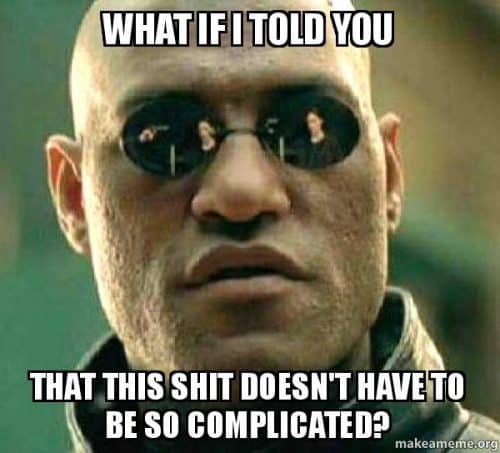
Exceedingly and superfluously obfuscated.
That’s how I’d describe Herbalife’s compensation plan.
Quick translation: More difficult to understand than necessary.
Herbalife has seemingly done their best to make sure that you understand as little as humanly possible about their business model.
Case in point (starts at 12:53):
Got all that?
Didn’t think so.
This is one of my biggest beefs with MLMs in general:
Compensation plans that are tricky to understand for the intellectually-challenged like me.
But after reviewing a crapload of MLM comp plans, Herbalife’s is one of the most impenetrable documents that I’ve ever had the displeasure of reading.
Here’s another video that tries to simplify the explanation of Herbalife’s different levels and ranks:
Ahhh, now it makes perfect sense…
Not.
All I know is that just like in any network marketing organization, the more products you sell and the more people you recruit, the more money you make.
But let’s just go over the basics of how it works.
You’ll normally pay around $60 to join and start as a Distributor in Herbalife, getting a 25% discount on products compared to retail.
So if you spend $150 on products, you can theoretically sell them for $200, and make a $50 profit.
You also earn “Volume Points” for every Herbalife product you purchase.
All Herbalife products are assigned a Volume Point value and the more points you accumulate in any given month, the larger the discount you’ll receive.
And if you can sell (or buy) 500 Volume Points of product per month, you become a Senior Consultant and qualify for a downline.
Then you’ll earn 10% on sales of the distributors in your downline.
Here’s what the Herbalife ranking ladder looks like:
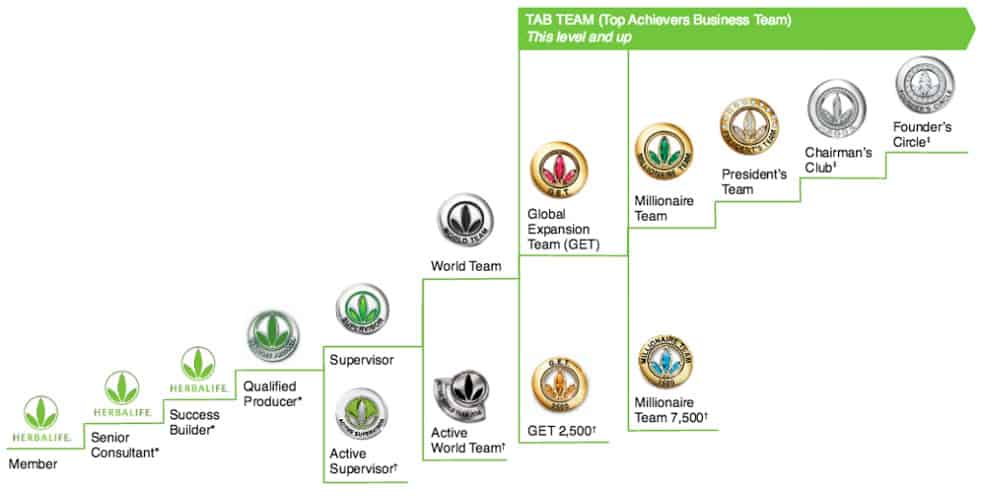
You’ll probably need to become at least a Supervisor with 4,000 Volume Points over 2 consecutive months to start seeing some decent monthly income.
Then again, maybe not.
Herbalife has an incredibly confusing way of chopping up volume points into different categories that don’t always count for you.
You’ve got Documented Volume vs. Non-documented Volume, Encumbered Volume vs. Unencumbered Volume, Personally Purchased Volume vs. Downline Volume, Primary Volume vs. Secondary Rewardable Volume…

I think you get the point.
Feel free to check out Herbalife’s Sales and Marketing Plan if you wanna know more.
Good luck and sweet dreams.
Herbalife: Quick Summary
| PROS | CONS |
|---|---|
| Herbalife has been around for nearly 40 years and withstood the test of time, making a name for itself as one of the most successful MLMs of all-time. | Over the years, Herbalife has been repeatedly sued by individuals and governments for deceptive business practices and famously accused of being a pyramid scheme (it's not). |
| Their one-year refund policy for new distributors makes it more enticing for aspiring entrepreneurs to get started compared to many other MLMs. | The company has a lot of consumer complaints ranging from adverse reactions to Herbalife products to bad experiences with distributors or difficulty getting refunds. |
| Herbalife has many high-visibility sponsorships which can add credibility to the MLM brand, ranging from professional athletes like Cristiano Ronaldo, to professional sports teams like the LA Galaxy soccer team. | Like most MLMs, Herbalife's products tend to be pricey compared to similar store-bought brands which can make them difficult to sell to your family and friends. |
| The Herbalife Family Foundation, Herbalife Nutrition Foundation, and Casa Herbalife are charities that the company is highly invested in to give back to children in need. | Herbalife's compensation plan is very difficult to understand and – like all MLMs – is really focused on building a team of distributors below you aka recruiting others into the business. |
Bottom Line: Is Herbalife a Grand Slam or Planned Scam??
When the FTC reached their $200 million settlement with Herbalife, they did not officially label it a “pyramid scheme”.
They just said the company had committed “deceptive and unlawful acts.”
Likewise, I’m not gonna say Herbalife is a “scam” because some of their distributors do earn six-figure passive incomes and they obviously sell billions of dollars worth of products every year.
But I will say that you’d probably make more money at a minimum wage McJob than you would by becoming a Herbalife distributor.

Don’t get it twisted — I’m not a hater and actually really admire Mark Hughes as an entrepreneur and Herbalife’s perseverance as a company.
And you can’t argue with their incredible success.
But facts are facts and the odds of you making it past the first few ranks are statistically almost nil.
Let’s also take a peek at some hard numbers from Herbalife’s income disclosure statement:
- 50% of all Herbalife distributors make zero dollars.
- The vast majority of the other 50% make between $140 – $315 per month ($2700 average per year).
In comparison, a full-time job at the U.S. minimum wage of $7.25 per hour, would earn you around $14,000 per year (5 times more than Herbalife).
So even if you only worked part-time (20 hours/week), you’d still end up earning almost double what the average Herbalife distributor makes.
But one thing’s for sure: the few who do make it big with Herbalife definitely seem to love this company.
And who knows, it just might be a good fit for you as well.
But keep in mind there are other options out there if you wanna work for yourself.
Either way, I hope this review helped you find what you’re looking for.
Shameless Plug: Realistic Passive Income Without MLM?
Imagine this:
No recruiting, no selling products, no rah-rah meetings, no bullsh*t.
Don’t believe me?
Don’t blame you.

But before you scream “SCAM!” and scram, do yourself a favor.
Put down the Hatorade and click here to discover more realistic ways to make passive income from home.
First and foremost, as an Herbalife distributor myself, I highly appreciate how you’ve really grounded your review on facts and both sides of the argument as to whether Herbalife is good or bad. This has been one of the best materials I’ve read on our company so kudos to you! I am sharing this.
1. I’m from the Philippines where the minimum wage is roughly 10 USD per day. You can see how persons from developing countries can easily appreciate the income from a part-time / full-time Herbalife business.
2. Yes, the compensation plan is tough to learn. It took me a while to finally fully understand it myself. However, it is a fair compensation plan that gives merit to hard work and will not put anyone at a disadvantage.
3. The fiber in the Formula 1 Shakes are what help regulate the sugar. Fruits contain sugar/fructose but also contain fiber which is why they’re satiating.
Thanks for your comments, Lorenzo!
While I can certainly appreciate how folks are attracted to a company like Herbalife, MLMs have extremely low success rates and high product prices which cannot be ignored either. Especially in a developing country whose minimum wage is 10 USD per day.
And I’m not a nutritionist but while I agree that fiber can offset some negative effects of sugar… you can’t compare the naturally occurring sugar & fiber in organic fruit with something manufactured like Herbalife’s Formula 1 Shake.
That said, I appreciate your input and wish you the best of luck with your Herbalife business 🙂